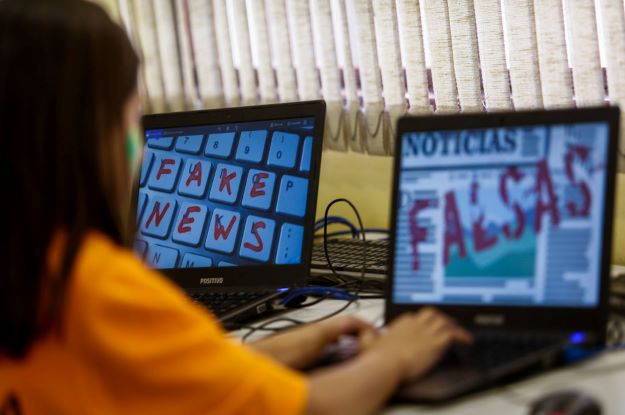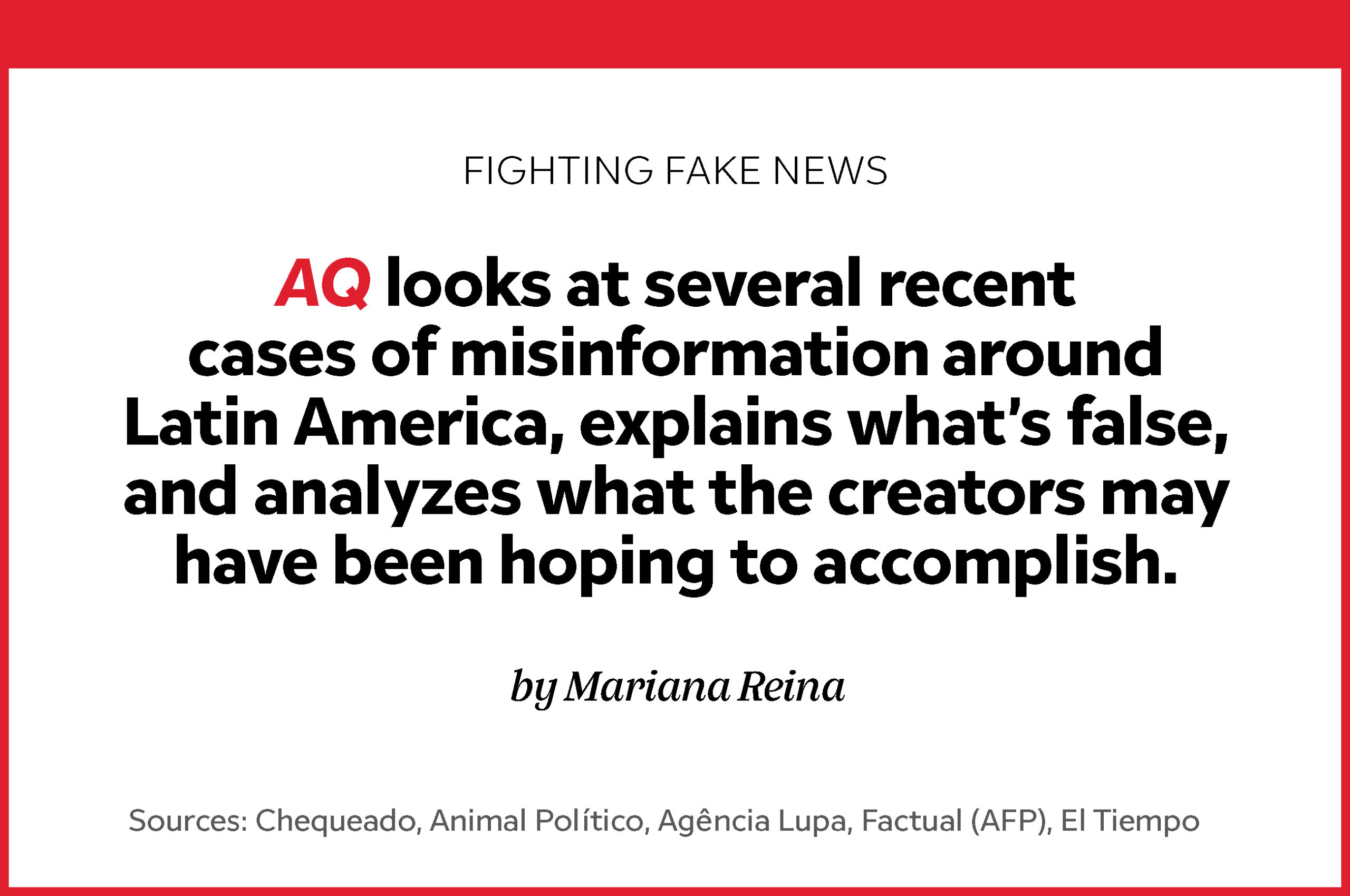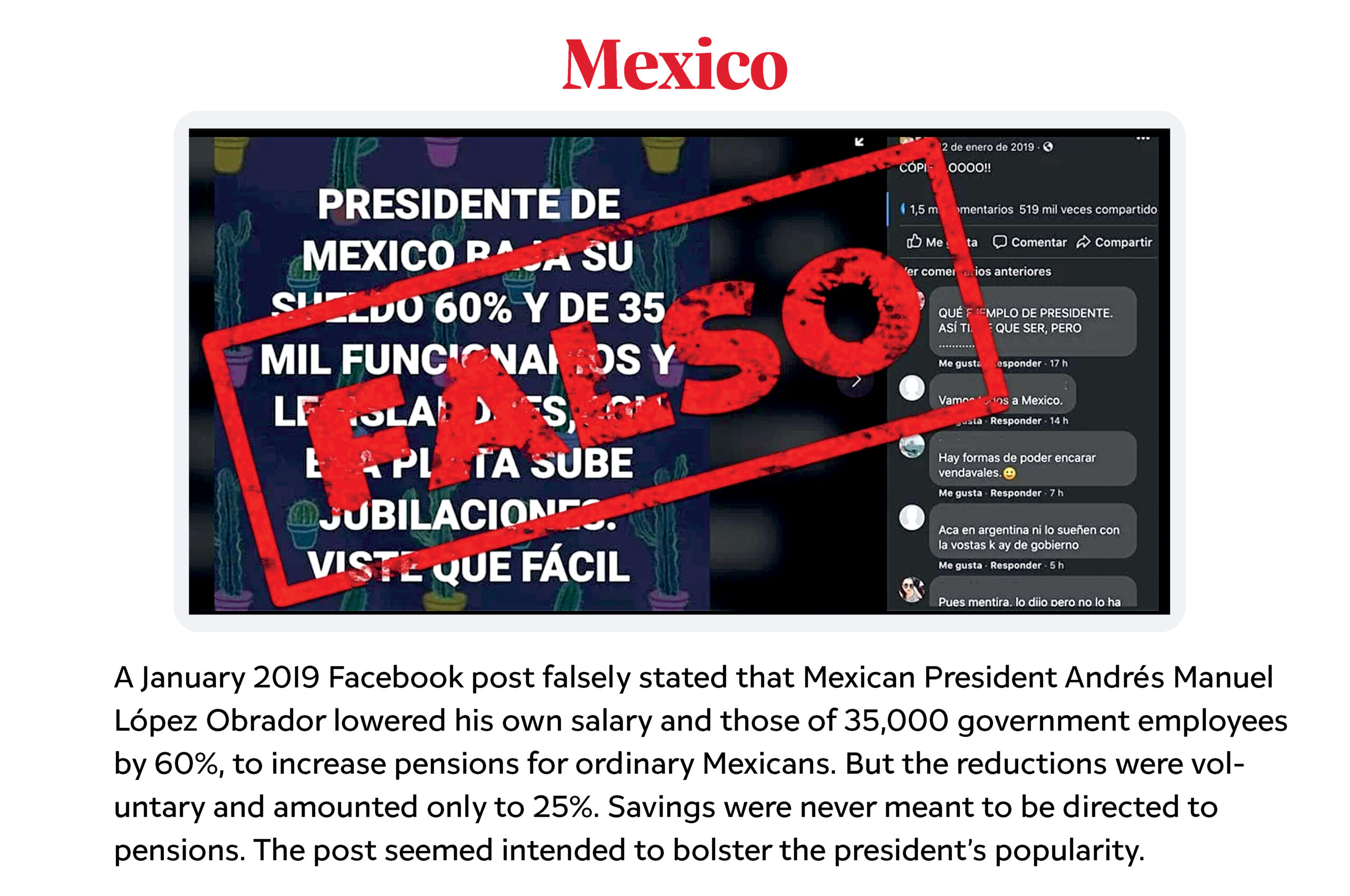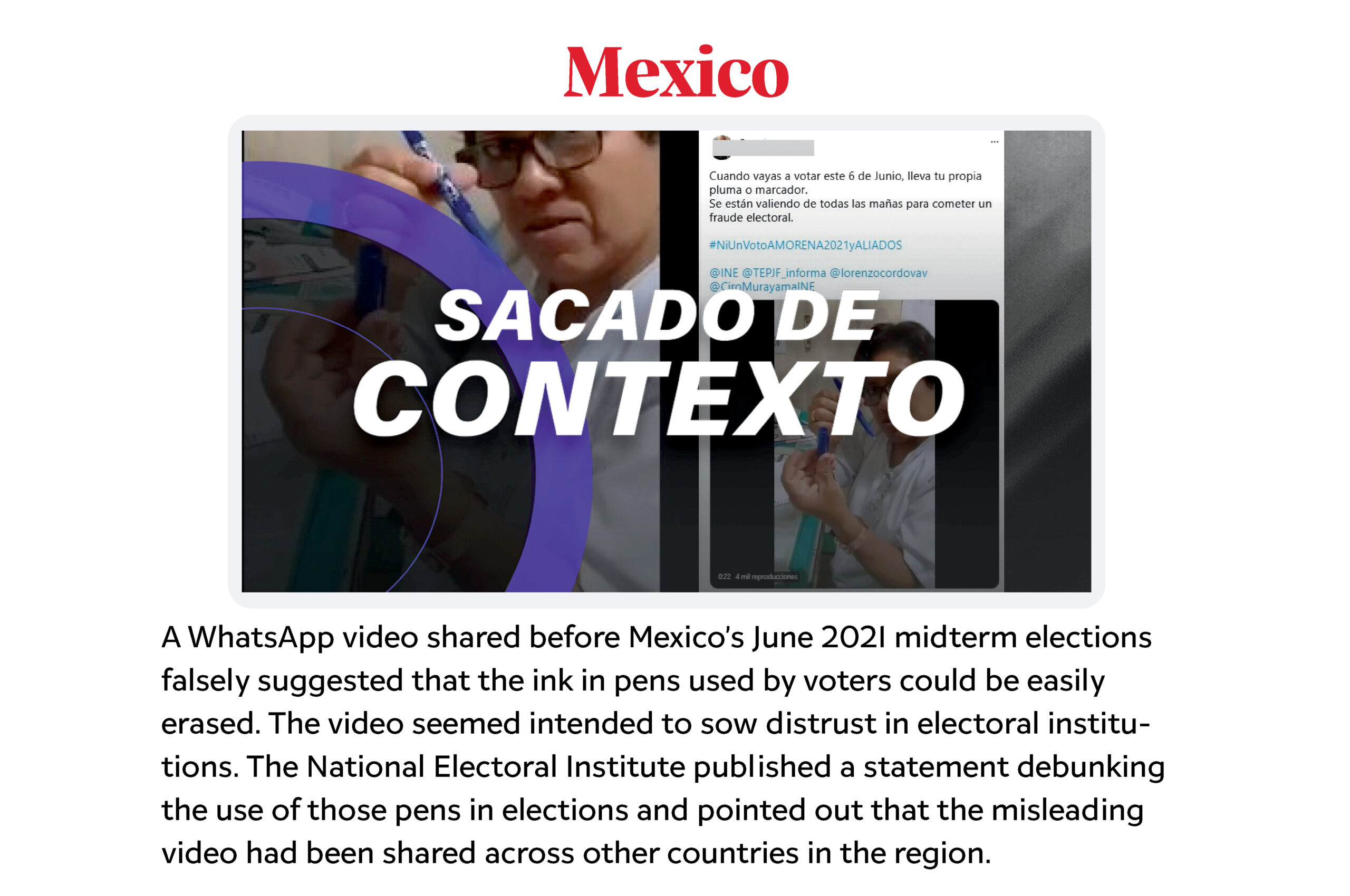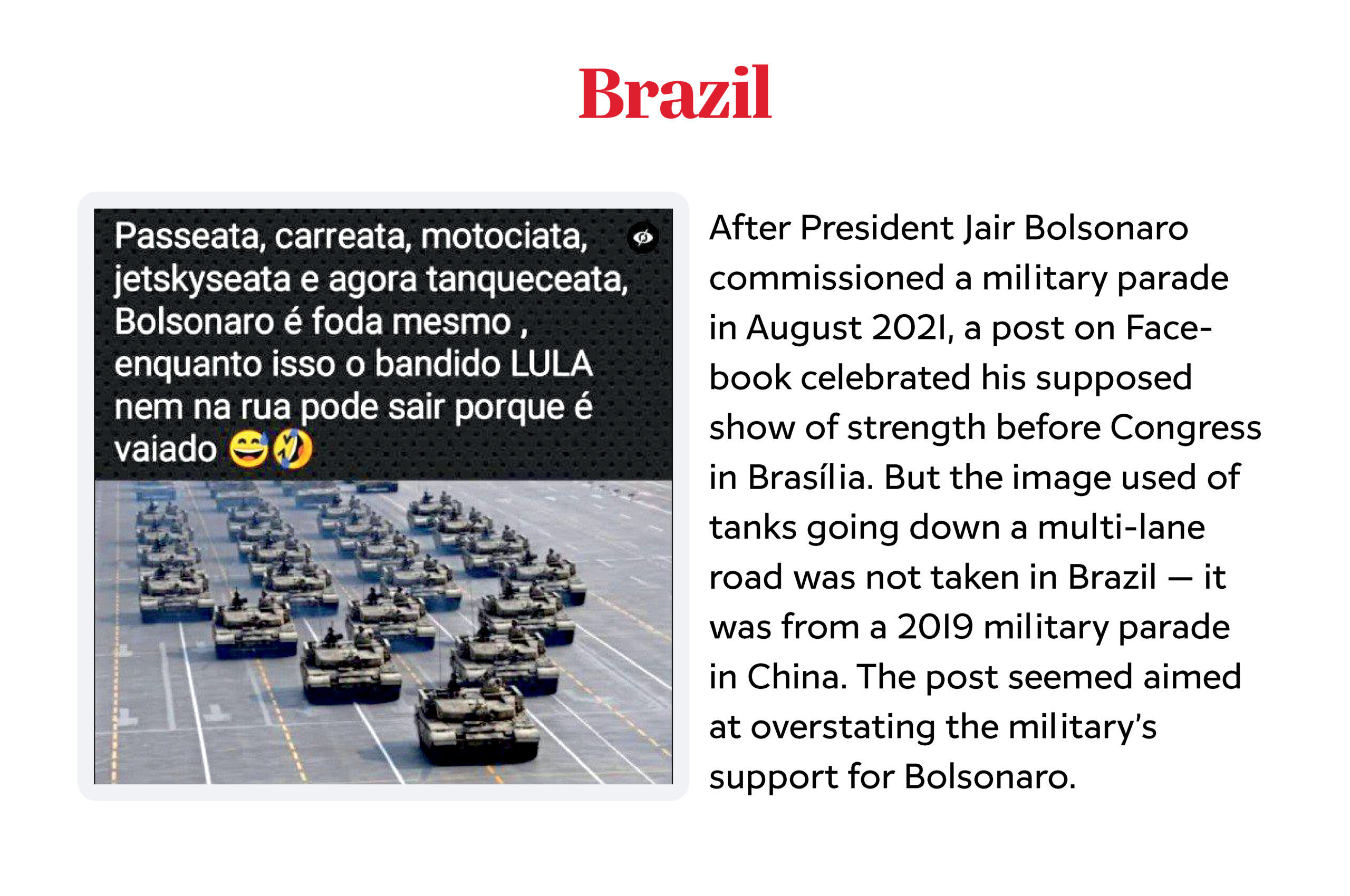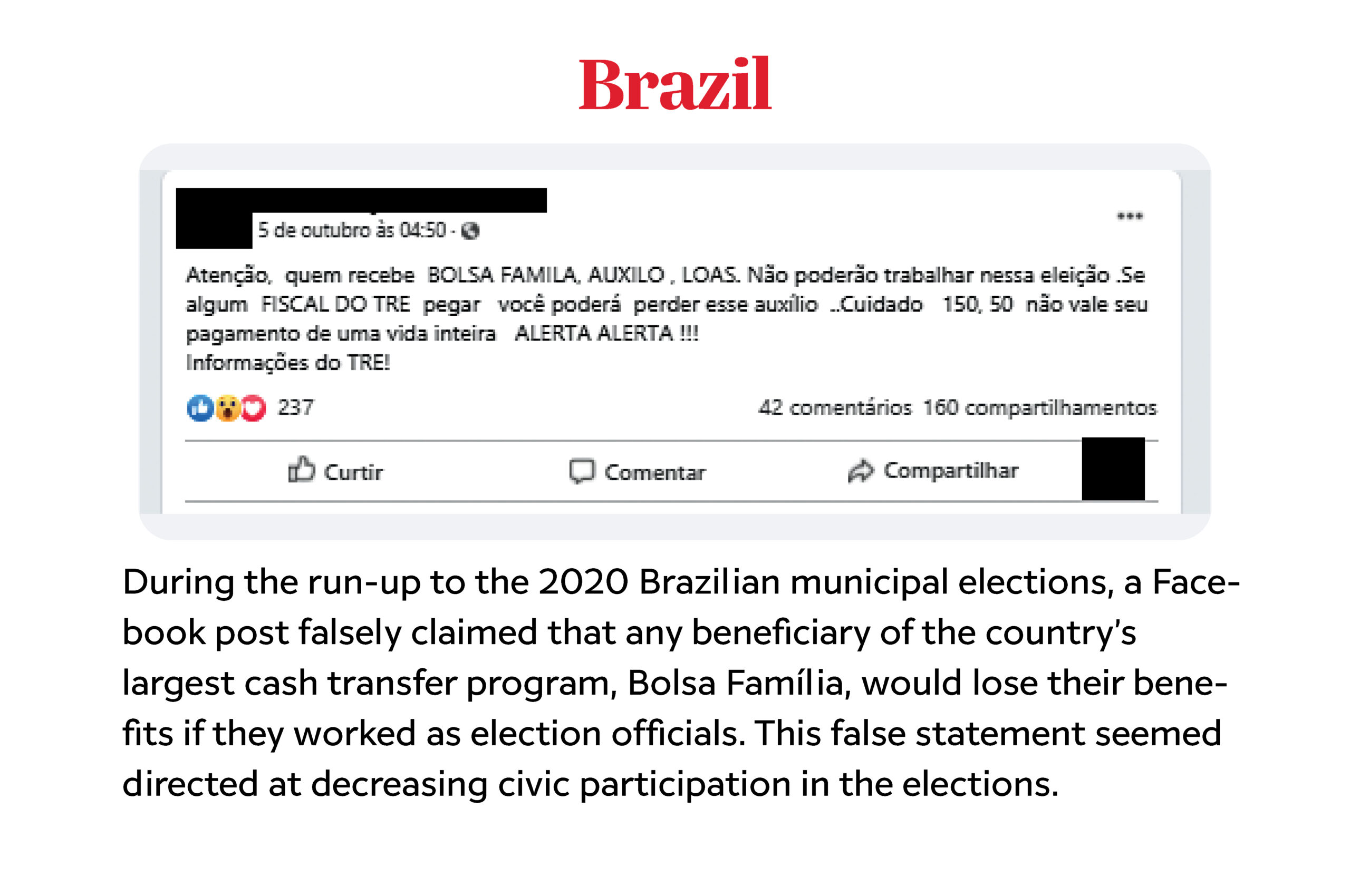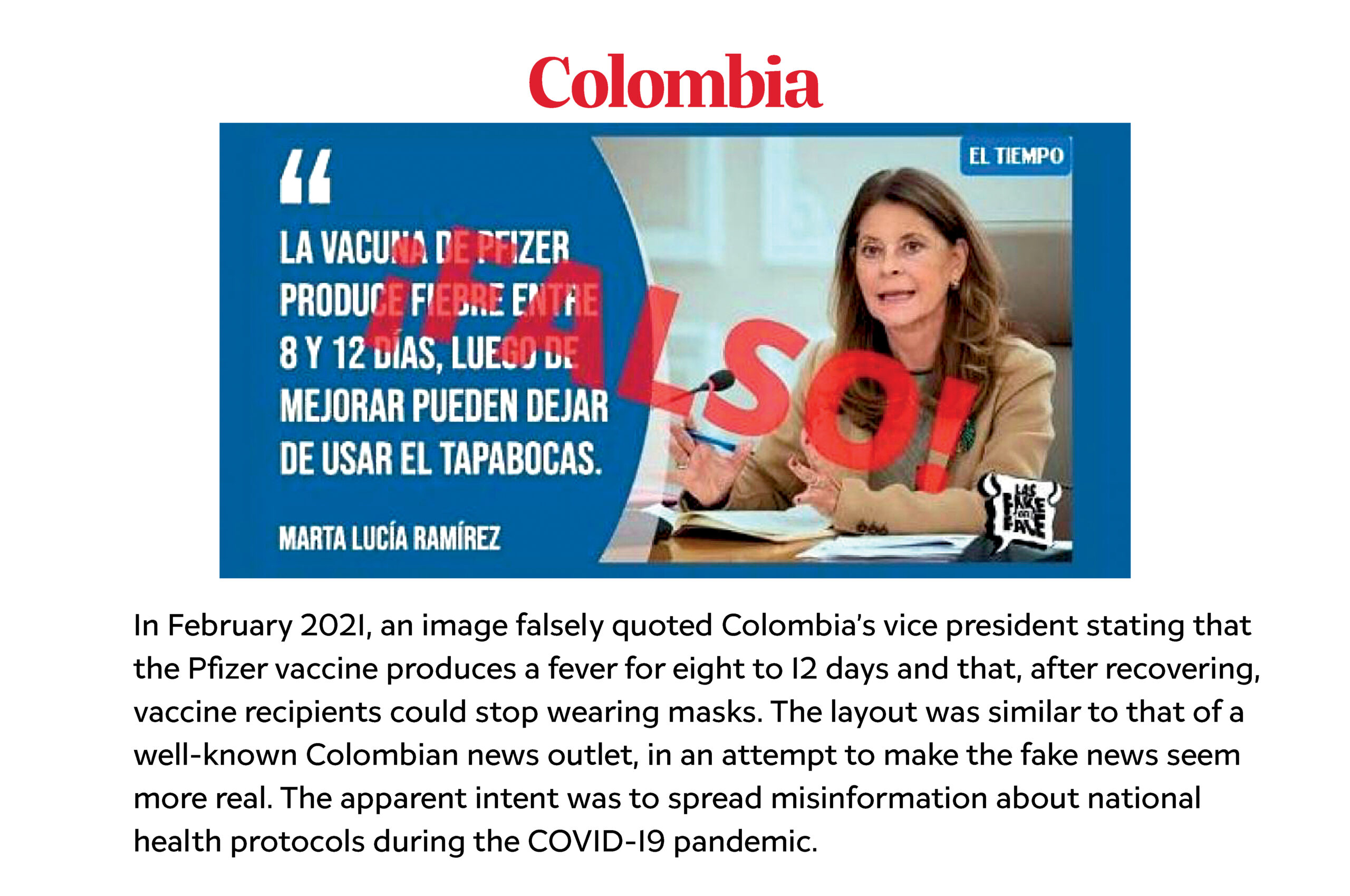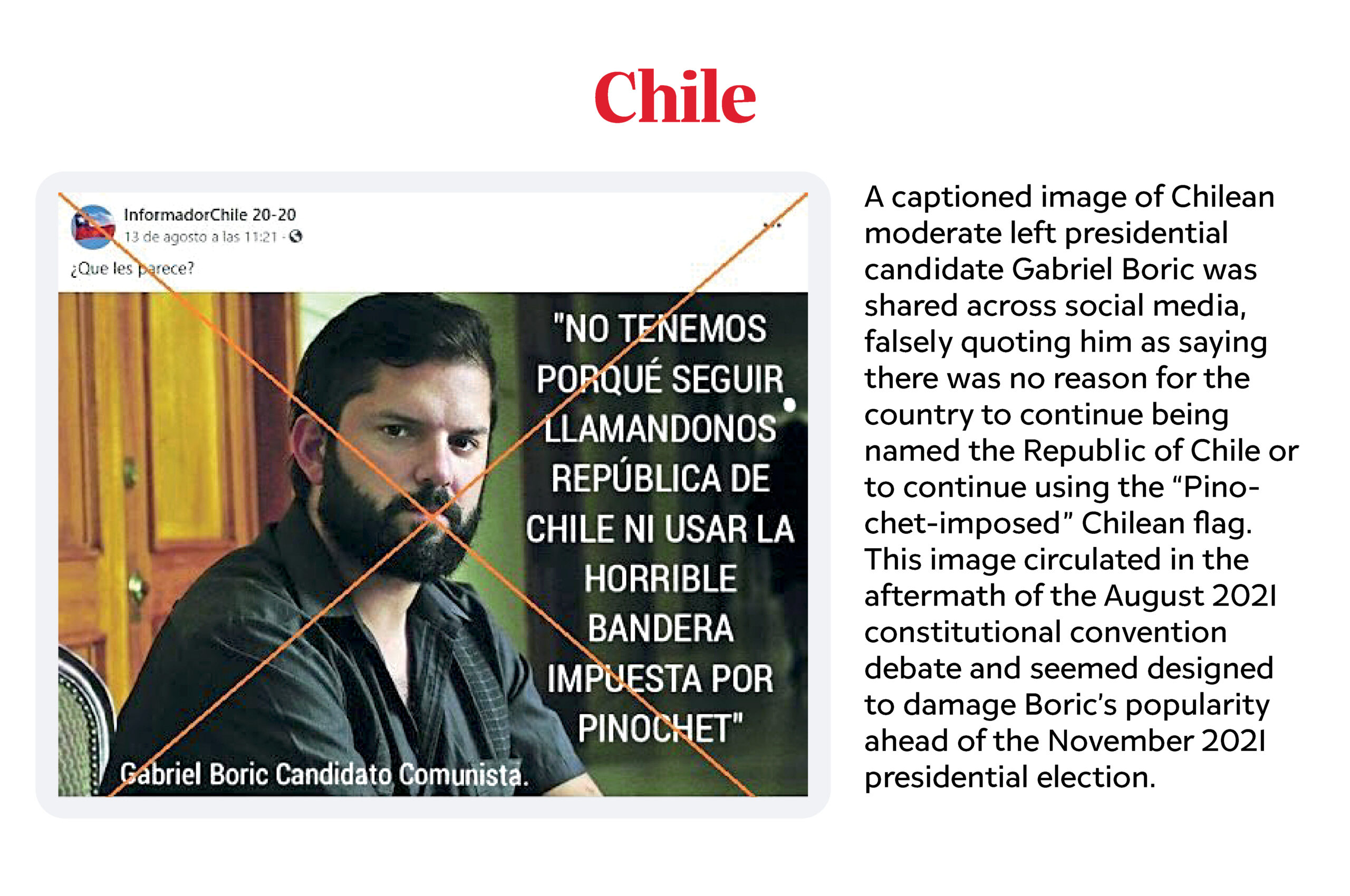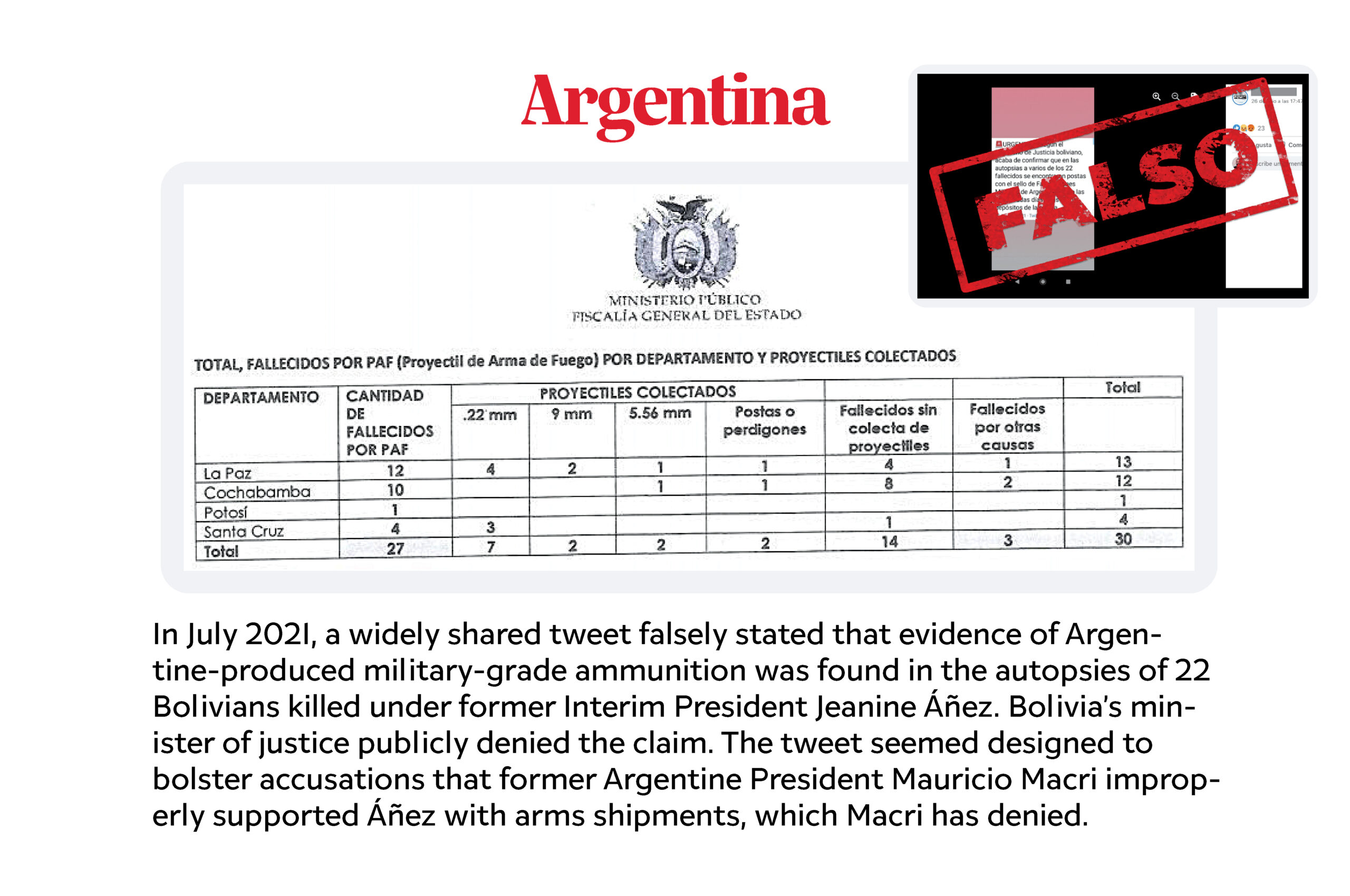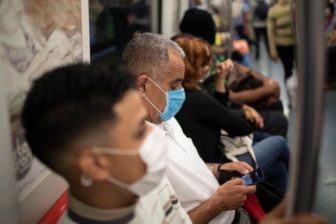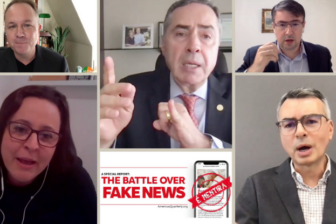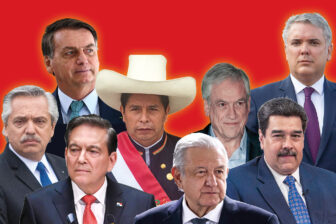This article is adapted from AQ’s special report on the battle over fake news
Governments and civil society have tried a number of different approaches to fight misinformation. But the barriers are formidable. Latin America has among the world’s highest rates of social media use, making countries fertile territory for fake news. But several of the proposed solutions infringe on free speech or can be easily abused by authoritarian governments with their own agendas, among other flaws.
Below, AQ compiled five categories of initiatives being tested, discussed or implemented in parts of Latin America.
1. Government-run fact-checking and monitoring services
In June 2019, Mexico’s President Andrés Manuel López Obrador launched Verificado, a fact-checking operation, as part of the government’s newswire Notimex. As of August 2021 it had no activity. Civil society and journalism groups expressed concerns the tool could be politicized and undermine the credibility of independent fact-checkers. (Verificado also faced a legal battle over the name itself, as several Mexican fact-checkers were already using it.) In Argentina, the Public Defender’s Office launched the Observatory of Disinformation and Symbolic Violence on Digital Media and Platforms (NODIO) in October 2020, to “detect, verify, identify and disarticulate malicious news.” Critics across the region said the initiative could be akin to censorship and a few politicians in the opposition tried unsuccessfully to sue the public defender who created the unit.
2. Legislation
The most common response to misinformation in the region is to try to create legislation to stop it, said Columbia University researcher Laura Duarte. In Brazil the Internet Freedom, Responsibility and Transparency Bill, popularly known as the “fake news” bill, was approved by the Senate in 2020 and is now in the lower chamber. The bill aims to combat the spread of false information by making social platforms responsible for combating disinformation and creates an “internet transparency council” with members from government and civil society. After Venezuela’s controversial 2004 Law of Social Responsibility in Radio, which was followed by a change in the country’s penal code in 2005, several Latin American countries are looking to criminalize the dissemination of fake news—with sentences of up to 10 years as in Nicaragua’s Special Cyber Crimes Law from 2020. Critics say Venezuela’s and Nicaragua’s legislation are effectively tools for political persecution. Other proposals making fake news a crime are being discussed in Chile, Colombia, Panama and El Salvador. According to the International Press Institute, 17 nations globally have passed some form of regulation targeting disinformation during the pandemic, with many other bills still pending in legislative bodies.
3. Working with social media companies
Several governments are trying to work with social media companies to tackle the main tools used to spread fake news. Mexico’s National Institute of Elections (INE) signed collaboration agreements with social media companies prior to the 2018 elections. As part of those accords, INE staff received training on using and monitoring the Facebook platform, while Google pledged to disseminate on YouTube information generated by INE about the electoral process, as well as other initiatives such as marking voting locations on Google Maps. Argentina’s electoral authority signed a memorandum of cooperation with Facebook, which pledged to amplify official electoral information while curbing the visibility of false posts. Brazil’s Superior Electoral Court (TSE) also partnered with social media platforms, with the creation of an official court chatbox on WhatsApp where people can send inquiries about dubious posts directly to TSE officials. Another tool allows electoral officials and WhatsApp to receive and collect information on social media accounts suspected of spreading messages in bulk, which also violates Facebook’s terms of use.
4. Ethics pacts among political parties
In Uruguay the six political parties with representatives in Congress signed an Ethical Pact Against Disinformation in April 2019, pledging “not to generate or promote false news or disinformation campaigns to the detriment of political adversaries.” The pact was proposed by the Uruguayan Press Association as part of a three-pronged campaign against disinformation that also includes training media professionals and a fact-checking tool.
5. Media literacy training
Researchers and specialists are almost unanimous that media literacy programs are the most effective long-term tool against the dissemination of fake news. The state of São Paulo in Brazil included media literacy as an elective class for middle schoolers to help them recognize what is news and how to check sources. Argentina’s fact-checking group Chequeado put together a handbook with UNESCO to help train others to spot disinformation. Outside the region, Finland has introduced a media literacy program at public schools in 2014 that teaches children from the age of six to read sources critically. Children are taught to evaluate and fact-check websites, and hunt for dubious sources. In 2019, the government of Finland topped the European Media Literacy Index that measures countries’ resistance to misinformation and disinformation.
__
Rauls is a former editorial assistant at AQ


